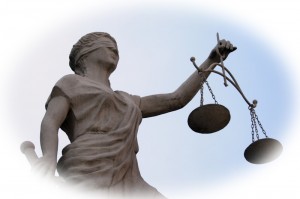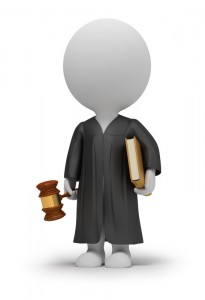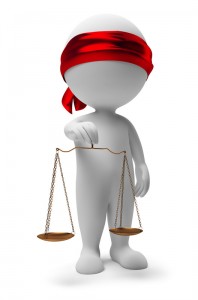 Human rights are commonly understood as an inalienable fundamental right to which a person is inherently entitled because he or she is a human being. The concept of human right has universal application and human rights come with them natural rights or as a legal right in both, but, what is meant by “right” has always been controversial and subject to debate. Such “right” includes the right not to be tortured, the right to remain silent, the right to a fair trial, the right to own property, the right to an adequate standard of living and the right of equal protection and equal treatment and equality before the law.
Human rights are commonly understood as an inalienable fundamental right to which a person is inherently entitled because he or she is a human being. The concept of human right has universal application and human rights come with them natural rights or as a legal right in both, but, what is meant by “right” has always been controversial and subject to debate. Such “right” includes the right not to be tortured, the right to remain silent, the right to a fair trial, the right to own property, the right to an adequate standard of living and the right of equal protection and equal treatment and equality before the law.
The concept of human rights also came with it the right to be presumed innocence until proven guilty, by a court of competent jurisdiction to try the case. Such a right of being presumed innocence is also a legal right under the law.
In a trial the prosecution has the legal duty and burden to prove the case against the accused person and the standard of proof is proof beyond reasonable doubt. When charged in court, as said earlier, human rights demand that all accused persons should be given equal protection and be treated equally under the law and this principle of equal protection and equality before the law means in the first place, regardless of the accused’s gender, race, origin, religious belief, financial or public status, the accused appearing in court has the right not to be discriminated against either in the course of proceedings or in the way the law be applied to the accused concerned. Second, whether the accused has been suspected of a serious or a minor crime, these rights have to be equally secured and be applied to everyone. The principle of equality in human rights also mean that all persons or accuseds must have equal access to the courts and be treated the same as other accuseds.
appearing in court has the right not to be discriminated against either in the course of proceedings or in the way the law be applied to the accused concerned. Second, whether the accused has been suspected of a serious or a minor crime, these rights have to be equally secured and be applied to everyone. The principle of equality in human rights also mean that all persons or accuseds must have equal access to the courts and be treated the same as other accuseds.
Further, human rights demand that there should not be any preferential treatment between accused persons and the prosecution and the accused has the right of equal treatment in law. The will of the authority should not be imposed on the accused person. The accused person when on trial should be free from any influence of a superior power over him where fair justice and prosecution, demands equality of arms to be applied before the courts.
 The freedom from influence of superior power or inequality of arms in the position of the Executive represented by the public prosecutor during prosecution could be felt when an accused person is prosecuted with the aid of presumption clauses in favour of the prosecution. For example, when a person is found in premises where dangerous drugs were found, the person occupying the premises is deemed under section 37 of the Dangerous Drugs Act 1952 to be in possession of the dangerous drugs. Likewise, under the same Act, if a person is found in his possession dangerous drugs with a certain minimum amount, the person is said to be trafficking in dangerous drugs.
The freedom from influence of superior power or inequality of arms in the position of the Executive represented by the public prosecutor during prosecution could be felt when an accused person is prosecuted with the aid of presumption clauses in favour of the prosecution. For example, when a person is found in premises where dangerous drugs were found, the person occupying the premises is deemed under section 37 of the Dangerous Drugs Act 1952 to be in possession of the dangerous drugs. Likewise, under the same Act, if a person is found in his possession dangerous drugs with a certain minimum amount, the person is said to be trafficking in dangerous drugs.
It is the view here that the aid of presumption in criminal prosecution therefore dilutes the universally accepted norm of standard of proof beyond reasonable doubt by prosecution against the accused person and also works against the presumption of innocence. The task of the prosecution becomes easier than any prosecution in other criminal cases. Once occupation or possession for trafficking is proved with the aid of presumptions, one could not discount a possibility of bias or prejudice in the mind of the judge presiding in the trial against the accused person. This prejudice can easily give rise to conviction against the accused person. The presiding judge in convicting the accused person, if he harbours prejudice against the accused person, can always justify the conviction to say in his judgment that he disbelieved the testimony of the accused person. The presiding judge may also at the same time, in order to justify his judgment say that he also disbelieve the evidence of defence witnesses, simply by saying that the defence  was putting a defence of bare denial and so forth.
was putting a defence of bare denial and so forth.
The presumption clause also gives rise against the concept of fair prosecution as there is no more equality in arms between the prosecution and the accused person as prosecution of criminal cases with the aid of presumptions gives undue disadvantage to the defence and when presumptions are invoked, at times presumptions are always difficult to rebut. Such presumptions in legislation should in the circumstances be declared unconstitutional, null and void under Article 8 of the Federal Constitution. Further, it is against the universal concept of fair trial and is arbitrary in nature.
Such trials with the assistance of presumptions where any question of fact or liability been conclusively presumed rather than proven against the accused person could also be argued to be not in accordance with due process of law as convictions can be on lack of solid ground.

